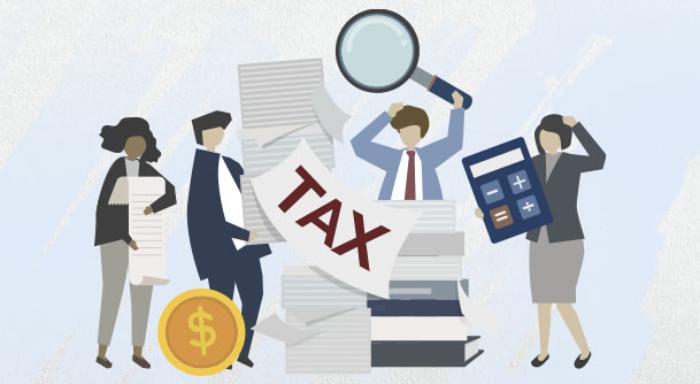Tax Savings for Senior Citizens on Medical Bills Under Section 80D
Blog Title
2046 |
7/2/24 4:30 AM |
Senior citizens often struggle to manage their medical costs in their golden years after retirement. This is where the Income Tax Act offers a provision that helps them get tax deductions on their medical bills under Section 80D. Here is a closer look at these deductions and their terms and conditions.
Deductions on Healthcare Expenses/Medical Bills Under Section 80D
The Income Tax Act allows a maximum deduction of ₹50,000 on medical costs incurred for the healthcare needs of senior citizens in one financial year. You can claim this amount for recurring medical expenses or for the treatment of illnesses which have been defined in this act.
It’s not just your health insurance plan or medical bills that get you tax savings under Section 80D. If you have chosen a health-related rider with your term insurance plan, like surgical care, critical illness, hospital care, personal accident etc. you’ll still be eligible to get Section 80D deductions.
Below is a list of eligible deductions under Section 80D.
Eligible Deductions for Medical Bills Under Section 80D
Can you claim deductions on any medical bill/expense under Section 80D? Here is a closer look at the terms and conditions pertaining to the same.
| What’s Covered | What’s Not Covered |
|---|---|
| Doctor’s Consultations | Costs for non-prescription drugs (with the exception of insulin) |
| Hospitalization | Cosmetic surgeries |
| Medicines | Health/fitness memberships |
| Cost of Hearing Aid, Pacemaker or Medical Devices | N/A |
Senior citizens opting for alternative medicine systems like Unani, homeopathy, and Ayurveda |
N/A |
Preventive health check-ups for senior citizens and dependents (up to ₹5,000 and within the overall limit of ₹50,000 under Section 80D) |
N/A |
There are also many specific illnesses covered under Section 80DDB. These include cancer, AIDS, Parkinson’s, and more. In this case, senior citizens can get tax deductions up to ₹1,00,000 on the costs of treatment for these diseases. If the medical condition of any senior citizen does not come under Section 80DDB or the limit for is exhausted, the remaining expenses may be claimed under Section 80D.
Now that you’ve got a basic idea of the eligible tax deductions under Section 80D, it’s time to look at Section 80DDB in more detail. This is important, considering that most seniors have higher risks of being diagnosed with critical illnesses.
Section 80DDB- What Does It Cover?
As mentioned above, senior citizens can get tax deductions up to ₹1,00,000 or the actual expenditure under this section (whichever is lower).
Here are the diseases that are eligible for tax deductions under this section:
- Neurological ailments with certified disability level of 40% and higher (Motor Neuron Disease, Dementia, Dystonia Musculorum Deformans, Chorea, Ataxia, Parkinson’s Disease, Hemiballismus, and Aphasia)
- Chronic Renal Failure
- Malignant Cancers
- Hematological Disorders- Thalassemia, Hemophilia
- Full-Blown Acquired Immuno-Deficiency Syndrome (AIDS)
It is worth noting that only costs incurred in the previous year may be deducted. Deductions may also be claimed for the treatment of a dependent like a parent, spouse, or sibling. The age of the person undergoing treatment will be used for calculation purposes in this case. For those who already have health insurance, the payout from the policy should be subtracted from the deduction.
How to Claim Section 80DDB Deductions
To claim the deduction, senior citizens should provide proof of the disease through a certificate issued by a doctor/specialist who has supervised the treatment. Section 80DDB also lays down the criteria for specialists across multiple categories of illnesses. Those being treated at government hospitals should get certificates from specialists who work there full-time. These specialists should have postgraduate degrees in general medicine.
The Form 10-I certificate also has to be obtained with the following details-
a. Patient name and age
b. Disease name
c. Registration number, address, qualification, and name of the specialist issuing prescriptions
d. Name and address of the hospital if the patient is being treated at a government facility
Conclusion
Section 80D and 80DDB are lifesavers for senior citizens. From health checkups and devices to treatments for critical illnesses, they help you get much-needed tax savings on a wide range of medical costs. However, be sure to check the terms and conditions of each section carefully before claiming these tax deductions.
Swati Tumar - Travel & Finance Writer
Swati is a Writer in the day and an illustrator at night. Among her interests, she is quite fond of art and all things creative. She often indulges herself in creating doodles, illustrations, and other forms of content. She identifies herself as an avid traveler and shameless foodie.





